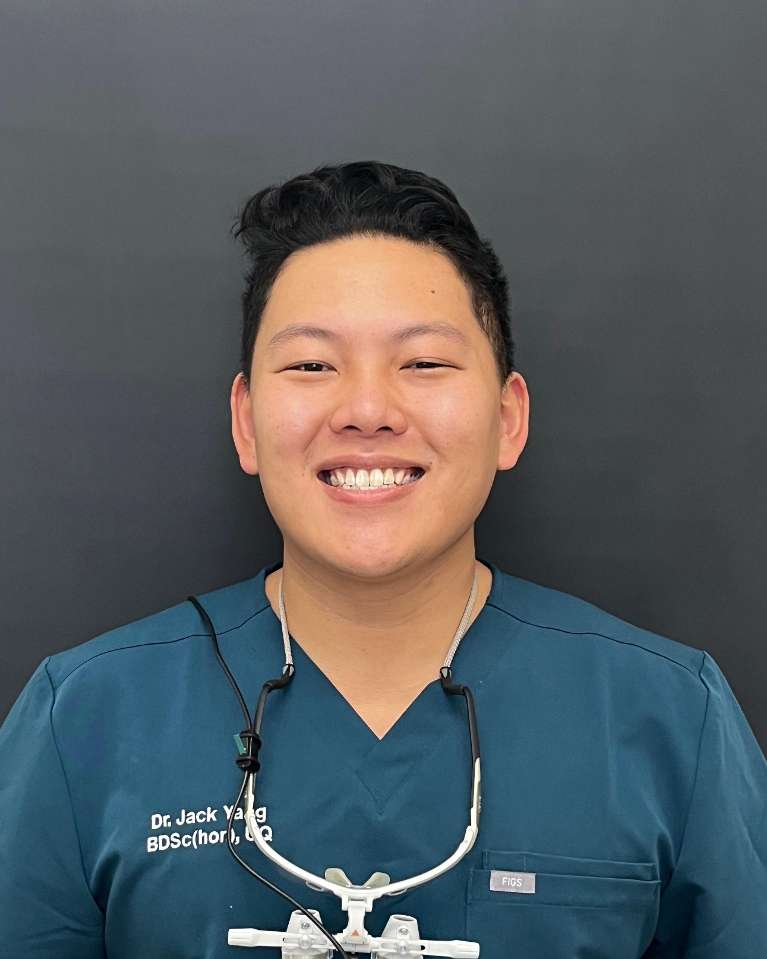 The TMJ, which is the joint that enables us to open and close our mouths, connects the upper jaw (temporal bone) to the lower jaw (mandible). When the joint becomes inflamed, it is painful and can even keep people from opening and closing their mouths all the way. This often leads to upper and lower teeth being unable to meet properly when you bite down. Sufferers might also feel pain in their ears. Other signs include headaches, any kind of jaw pain or popping when you open your mouth.
The TMJ, which is the joint that enables us to open and close our mouths, connects the upper jaw (temporal bone) to the lower jaw (mandible). When the joint becomes inflamed, it is painful and can even keep people from opening and closing their mouths all the way. This often leads to upper and lower teeth being unable to meet properly when you bite down. Sufferers might also feel pain in their ears. Other signs include headaches, any kind of jaw pain or popping when you open your mouth.
People who grind their teeth, a subconscious condition known as bruxism, can also be prone to disorders of the TMG. Teeth grinding is an involuntary clenching, grinding and gnashing of the teeth. People often don’t know they are doing it until their dentist notices the tell-tale signs of worn-down teeth or when symptoms such as jaw pain and headache start to show up.
TMJ can often be caused by overuse of the jaw muscle which hastens enamel wear which can lead to tooth decay. TMJ disorder can also result in inflamed and receding gums, as well as cracked and chipped fillings and even loose teeth. Common side effects of TMJ disorder are headaches and migraines, facial pain, earaches, tight or stiff shoulders, poor quality sleep and an aching jaw.
TMJ Treatment in Blue Mountains
People often mistake TMJ disorders for other conditions, including toothache or sinus infection, so it can be difficult to make a diagnosis. At our Katoomba, NSW surgery, our dentists can conduct a thorough examination and take x-rays to find out if your joint is inflamed.
Based on our discoveries at the exam, we can recommend appropriate treatment options. We will talk to you about each of them so that you can make the best decision for your well-being.
We usually recommend the most conservative treatments to start. Self-care and lifestyle changes may include “resting” the jaw by reducing some of the movement. You might be advised to avoid chewing gum or eating only soft foods. Exercises such as massaging the muscles around the TMJ might also be recommended. Applying ice or moist heat can also help with relief from symptoms.
If simple lifestyle modifications do not help, we may suggest that you wear a mouth guard at night for your bruxism. This will protect your teeth from any further wear, and it may also alleviate your TMJ symptoms.
Treatments for TMJ and Bruxism at Katoomba Dental Centre start from $263, with costs varying depending on the type of appliance or care recommended.
 If you wake up in the morning with headaches, neck or shoulder pain, or if your teeth are becoming worn and sensitive, you might have TMJ (temporomandibular joint disorder) or bruxism.
If you wake up in the morning with headaches, neck or shoulder pain, or if your teeth are becoming worn and sensitive, you might have TMJ (temporomandibular joint disorder) or bruxism.
 The TMJ, which is the joint that enables us to open and close our mouths, connects the upper jaw (temporal bone) to the lower jaw (mandible). When the joint becomes inflamed, it is painful and can even keep people from opening and closing their mouths all the way. This often leads to upper and lower teeth being unable to meet properly when you bite down. Sufferers might also feel pain in their ears. Other signs include headaches, any kind of jaw pain or popping when you open your mouth.
The TMJ, which is the joint that enables us to open and close our mouths, connects the upper jaw (temporal bone) to the lower jaw (mandible). When the joint becomes inflamed, it is painful and can even keep people from opening and closing their mouths all the way. This often leads to upper and lower teeth being unable to meet properly when you bite down. Sufferers might also feel pain in their ears. Other signs include headaches, any kind of jaw pain or popping when you open your mouth.


 Muscle relaxants are an effective and safe way to treat TMJ disorders. Muscle relaxants are injected into the jaw muscle which numbs the nerve receptors in the muscles that initiate movement and contractions. This treatment will weaken the target muscle while leaving enough strength for normal use; your speaking and chewing function will not be affected.
Muscle relaxants are an effective and safe way to treat TMJ disorders. Muscle relaxants are injected into the jaw muscle which numbs the nerve receptors in the muscles that initiate movement and contractions. This treatment will weaken the target muscle while leaving enough strength for normal use; your speaking and chewing function will not be affected.

